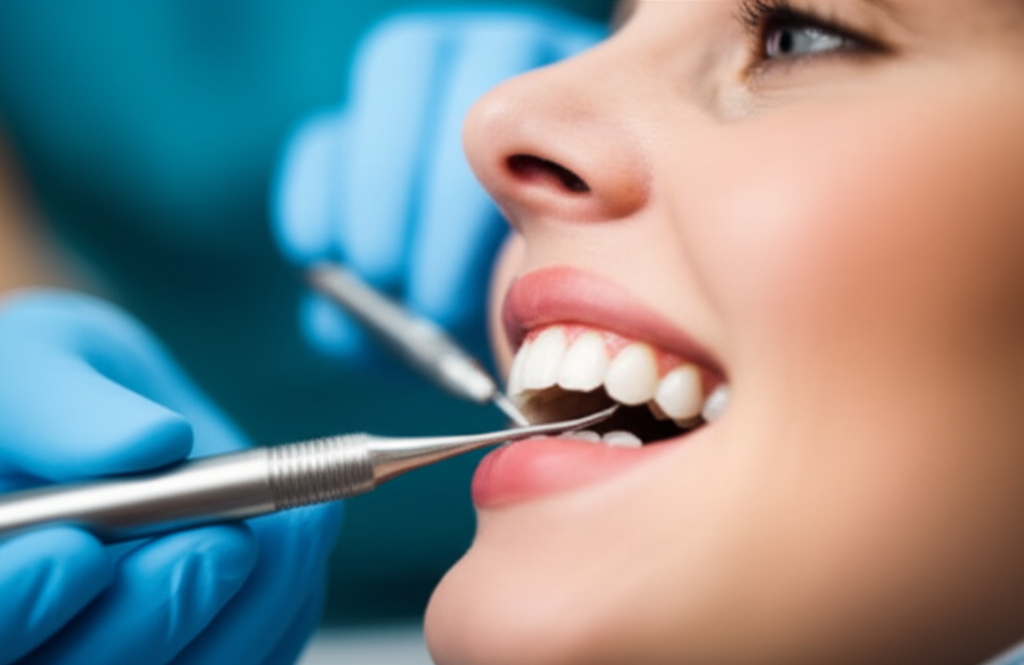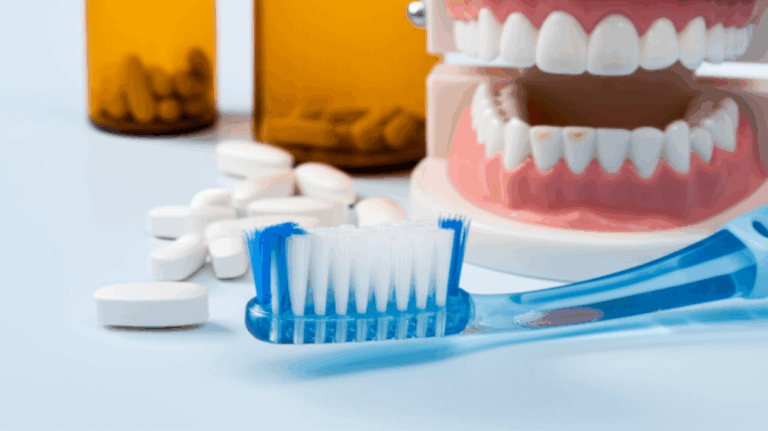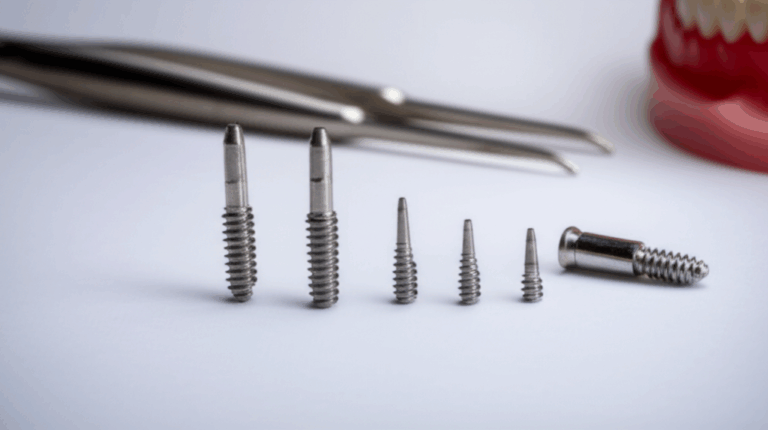
How Safe Are Dental Implants? A Complete Guide to Risks, Success, and Long-Term Results
Table of Contents
- Outline Overview
- Introduction: Understanding Dental Implant Safety
- What Are Dental Implants?
- Why Think About Dental Implants?
- The Big Success Rate: A Good Start
- The High Success Rate of Dental Implants
- What Do Success Rates Really Mean?
- Numbers That Show Success
- Why Do Most Implants Work So Well?
- Possible Problems and Risks: A Realistic Look
- Common Small Problems (Usually Go Away Fast)
- Rare but Bigger Risks
- Risks from Surgery and Your Health
- What Affects Dental Implant Safety and Success?
- Your Health and Daily Habits
- How Skilled Is Your Dentist or Surgeon?
- Is the Implant Material and Technology Good?
- How You Take Care After Surgery
- Long-Term Safety and How Long Implants Last
- How Long Do Implants Last?
- How To Avoid Problems Years Later
- Cutting Down Risks: What You Can Do
- Pick a Good Expert
- Share All Your Health Details
- Follow Before and After Tips
- Keep Your Mouth Super Clean
- Go Back For Check-Ups
- Conclusion: Dental Implants – Safe and Work Well
- Are Dental Implants Really Safe?
- Will Implants Suit You?
Outline Overview
Before we get into the details, here’s a quick look at what you’ll find here. I’ll talk about what dental implants are, how well they usually turn out, what can go wrong, what you can do to stay safe, and how things look years later.
Introduction: Understanding Dental Implant Safety
What Are Dental Implants?
When I first thought about getting a dental implant, I really only knew that something gets “screwed” into your jaw. Now, after learning more (and actually having one), I would put it this way: a dental implant is like a man-made tooth root, usually made from titanium or zirconia. My dentist said it’s the base for a fake tooth, made to look, feel, and work just like your real tooth.
The main implant part goes into your jawbone. After some healing, the dentist puts a custom-made tooth (a crown) on it. Unlike loose dentures or bridges, implants join with your bone, so they’re solid and feel like the real thing.
Why Think About Dental Implants?
For me, the best part was stability. I’d watched my grandma struggle with dentures that move around, and I didn’t want that problem. Implants gave me strong chewing and a natural look. I could smile and eat things like corn-on-the-cob with no worries! Plus, because the implant is in the bone, it helps keep your jawbone healthy—a nice extra I didn’t even think about until my dentist brought it up.
The Big Success Rate: A Good Start
Here’s what made me feel better. Dental implants have one of the top success rates for any medical thing you can get. Almost every good source I read talked about a 95% to 98% success rate. That number helped me decide to go for it.
The High Success Rate of Dental Implants
What Do Success Rates Really Mean?
You may have seen those big numbers. But what does a 95% or 98% success rate mean? Put simply, it means the implant stays where it should, feels right, and lets you eat and smile with no real issues like pain or infection. It’s not just about getting through the surgery. It’s about the implant working well for a long time.
Numbers That Show Success
Some numbers feel hard to picture. When I looked at real studies (from groups like the American Dental Association and other big dental groups), they all said about the same thing: if you put in 100 dental implants, at least 95 will be working fine even after 10 years. That made me feel better, since nothing in medicine is ever 100% perfect.
Why Do Most Implants Work So Well?
I was actually blown away by how much goes into making those stats high. Here are a few things I learned:
- Better Ways To Do Surgery: Many dentists use 3D scans and computer planning for exact placement, which means fewer mistakes and better results.
- Good Materials: Most implants are top-quality titanium, liked for strength and its ability to join with bone (called osseointegration). Some are zirconia for people who can’t have metal.
- Careful Checks Before Surgery: My dentist checked my bone, gums, and health history. Turns out picking the right patients is key. Sometimes, you might need extra fixes (like more bone) before you can get an implant.
Possible Problems and Risks: A Realistic Look
I’d be lying if I said I wasn’t worried about problems. I spent nights reading about “dental implant problems” and “are dental implants safe?” Here’s what I really went through and what I found out from real dentists.
Common Small Problems (Usually Go Away Fast)
Just like with any minor surgery, a few easy-to-handle problems are normal. Here’s what I noticed:
- Swelling and Bruising: By day two, my cheek was a bit puffy—but ice packs helped. Swelling went down after a few days.
- Mild Pain or Soreness: I only needed pain pills you can buy at any drugstore. Most people say it’s just achy for a few days, then gets better.
- Numbness: My jaw was numb for a bit after surgery because of numbing medicine. Feeling came back after a few hours. Sometimes a little tingling lasts, but it usually goes away.
Rare but Bigger Risks
Now for the more serious stuff—not common, but good to know. Luckily, these didn’t happen to me, but I did my research.
- Infection: This is the thing most people worry about. It might show up as swelling, pain, or pus in the days after surgery. Keeping things clean and taking any medicines your dentist gives you makes this rare.
- Nerve Problems: If the implant is too close to a nerve, you might feel tingling, numbness, or even pain. Having a dentist who knows what they’re doing cuts this risk a lot. Most cases get better, but in rare ones, it can stick around.
- Sinus Issue: For people getting implants in the upper jaw, if the implant is too close to your sinus, you might have some mild sinus trouble. But this is rare today, since new ways of planning make it almost never happen.
- Implant Not Joining To Bone: Sometimes the body just doesn’t accept the implant, because of healing trouble, infection, or very rare allergies. If the implant doesn’t “take,” it’s removed. The good news: it’s easy to remove, and trying again later often works.
- Gum Trouble Around the Implant (Peri-Implantitis): This is gum disease but for implants. Red, swollen gums and bone loss around the implant can happen if you don’t keep things clean. I treat my implant like gold when I floss.
- Allergic Reaction: These are very rare. Most people are fine with titanium, but zirconia is there for those who aren’t.
- Nearby Teeth or Vessel Damage: Rarely, a nearby tooth or blood vessel can get hurt if the placement isn’t perfect. Another reason to pick a dentist who’s done this a lot.
Risks from Surgery and Your Health
Some risks aren’t from the implant itself, but more about surgery or your body:
- Problems from Numbing or Sleep Medicine: Most surgeries use numbing, but you could get IV or general anesthesia. Problems are unusual, but always possible. My dentist used local numbing and it was fine.
- Bleeding: Some slight bleeding is normal after surgery. I was told to bite down on gauze and skip hot foods for a bit—easy steps that really help.
What Affects Dental Implant Safety and Success?
So what makes the difference between great results and the rare problems? From my own journey (and lots of reading), I found a few main things.
Your Health and Daily Habits
Not everyone’s mouth is the same. Here’s what my dentist really wanted me to know:
- Smoking: Smoking is a big reason implants can fail. It slows healing and means higher risk of infection. I quit before I got my implant—best thing I did for my mouth.
- Diabetes: If you have diabetes, it should be controlled. If it’s not, healing can be tough. Your dentist may check with your doctor before going ahead.
- Bone Health/Medicines: If you have weak bones or take medicine for bones, the dentist needs to make sure your jaw is ready for an implant.
- Gum Health: Healthy gums are super important. Gum disease must be fixed before any implants.
- Weak Immune System: If your body has trouble healing, or you’re on certain medicines, the dentist may need to take extra steps.
How Skilled Is Your Dentist or Surgeon?
This one matters a lot. A dentist or oral surgeon who’s done a lot of implants really does make things safer and better. Here’s what I checked, and what I tell others:
- Qualifications: It’s important to find someone with real training and experience.
- Extra Skills: Some procedures (like full jaws of implants) need extra know-how. Ask to see before-and-afters or their training.
- How You Get Along: Pick someone you trust. I asked lots of questions, and my dentist always answered.
It’s worth saying: Where the dentist gets crowns and parts also matters. Picking a good implant dental laboratory can help the tooth look and fit right for years.
Is the Implant Material and Technology Good?
My implant wasn’t just any metal. Today, most are made with the best medical titanium. If you have odd allergies, zirconia is a safe bet.
- Imaging: My dentist used a special scan for a full 3D view. That meant perfect placement, just for my mouth.
- Materials: Be sure your dentist uses safe, tested implant brands. It matters for both safety and a nice-looking tooth!
How You Take Care After Surgery
Once the surgery is done, your job starts! Keeping your mouth clean is just as important as the dentist’s skills.
- At-Home Care: My dentist gave me simple but strict rules: gentle brushing, a soft toothbrush, and floss every day. The cleaner you keep the area, the less chance of future problems.
- Dentist Visits: I go in every six months (more right after surgery). These visits catch any problem early.
If you like details, you can read about daily dental care habits that protect all your teeth and implants.
Long-Term Safety and How Long Implants Last
How Long Do Implants Last?
One of my first questions was, “How long will this last?” The answer? With good care, dental implants can last decades, even a whole lifetime. Most studies say the 10-year survival rate is over 95%. I even know people whose implants are over 20 years old and still working.
How To Avoid Problems Years Later
Here’s what’s worked for me and others I’ve talked to with implants:
- Care Every Day: Brush, floss, rinse—sounds basic, but it works for keeping gums healthy. I got an electric toothbrush and love it.
- Dental Cleanings: A dental hygienist can reach spots you can’t. Regular cleanings protect both your teeth and implants.
- Watch for Teeth Grinding: I grind my teeth at night and didn’t know that could hurt implants. My dentist got me a custom night guard, and it’s really helped.
Want to know more about how mouth health and body health connect? You can read about teeth health for a bigger-picture view.
Cutting Down Risks: What You Can Do
Not everything is under our control, but there’s a lot you—and I—can do to help things go well.
Pick a Good Expert
If I could only tell you one thing, it’s this: choose your dentist or surgeon carefully. Their skills matter from planning to surgery and follow-up.
Share All Your Health Details
Don’t leave anything out. Tell your dentist about all your health issues, medicines, and any past surgeries or infections. It all matters for planning a safe implant.
Follow Before and After Tips
Maybe this part isn’t fun, but it really helps. I got a list of do’s and don’ts (like skipping crunchy food and keeping clean), and following them helped me heal fast.
Keep Your Mouth Super Clean
Brush and floss every day. Implants aren’t safe from plaque or gum problems, so treat your implant and gums with care.
Go Back For Check-Ups
Don’t miss your six-month check-up. Catching small problems early stops big ones later. Think of these visits as insurance for your new tooth.
Conclusion: Dental Implants – Safe and Work Well
Are Dental Implants Really Safe?
After my own experience and spending too much time reading studies, here’s the truth: dental implants are one of the safest and most reliable dental options today. Are there some risks? Yes—like with all surgery. But with today’s methods, careful planning, good materials, and taking care after, big problems are rare.
Will Implants Suit You?
If you’re missing teeth, implants are a strong, nice-looking fix. Still not sure? My tip: talk honestly with your dentist about your health and what you want. No article—this one included—can take the place of a chat with your dentist.
If you want to dig deeper or look at other choices, ask about different implant materials or how to care for your new tooth. The more you ask, the better your results will be.
Good luck, and here’s to big, happy smiles!








